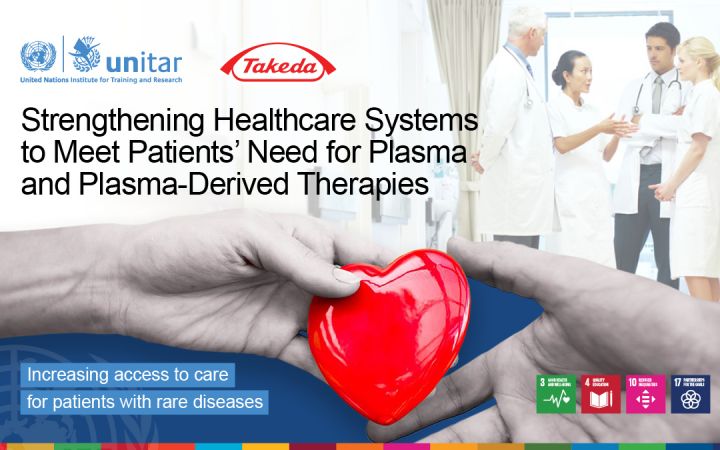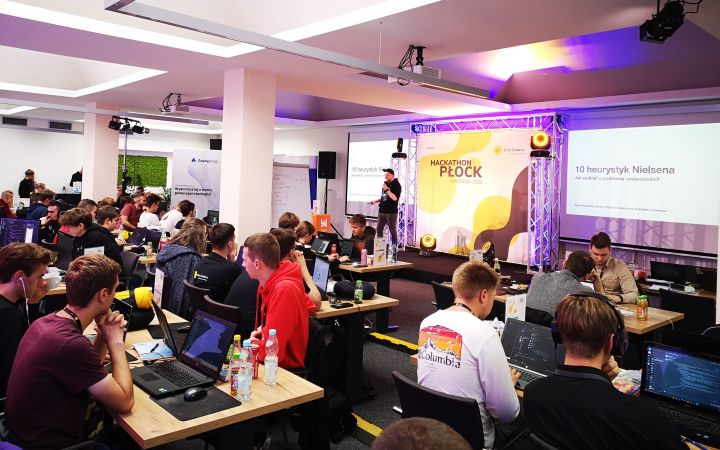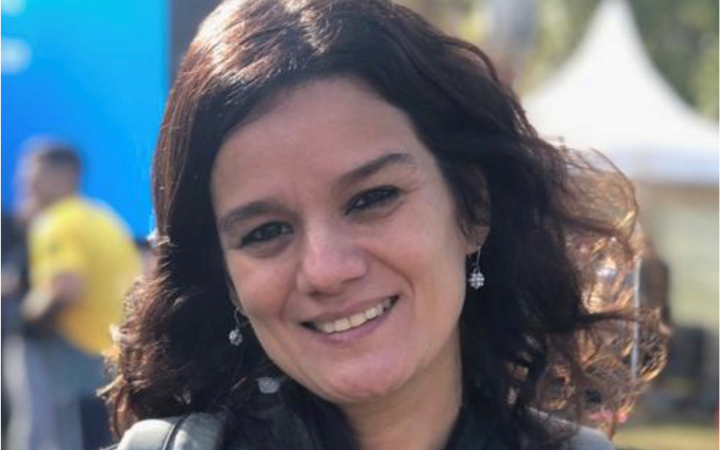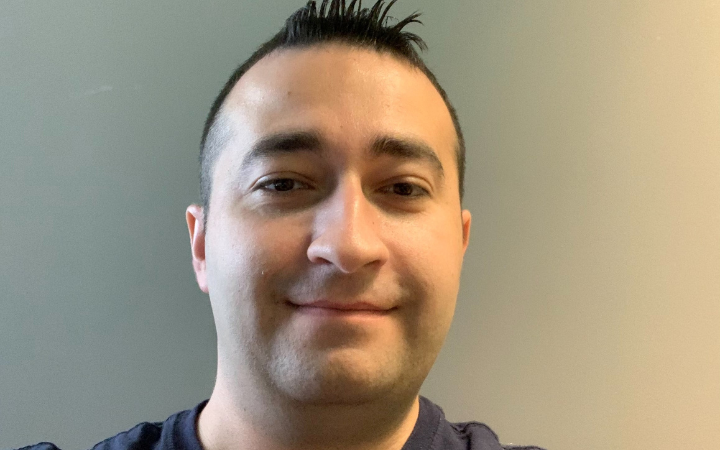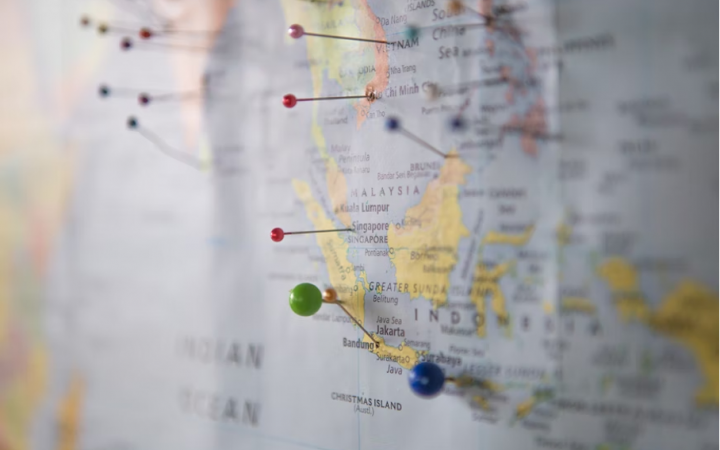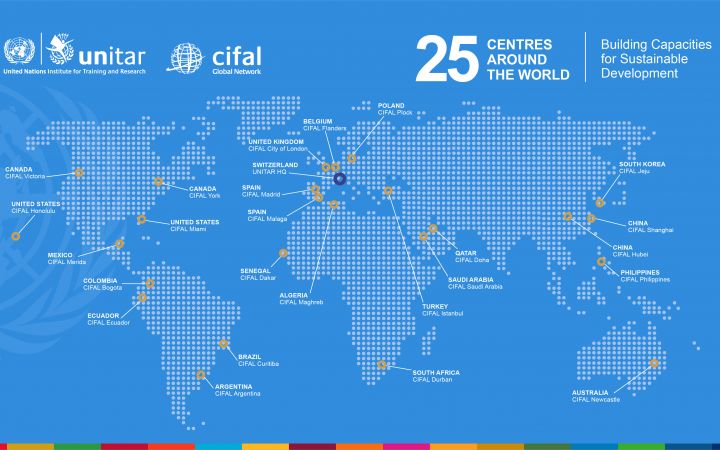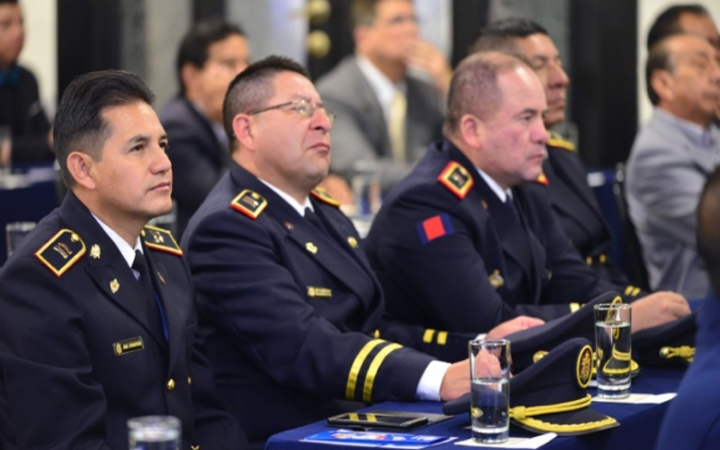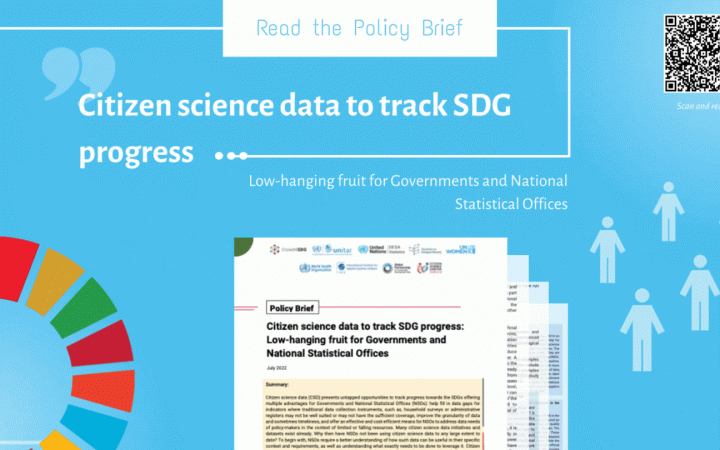Displaying 331 - 340 of 1265
29 September 2022
As part of their well-established partnership, UNITAR) and Takeda, a global pharmaceutical leader and an active member of the United Nations Global Compact, are pleased to announce a new joint initiative focused on strengthening countries’ healthcare systems to meet patients’ needs for plasma and plasma-derived therapies.
27 September 2022
27 September 2022, Plock, Poland – The International Training Centre for Authorities and Leaders (CIFAL) in Plock hosted the “City Coders Hackathon Plock” on 25-26 September, bringing together 81 participants, mostly high schoolers and university students to develop an application that would respond to the needs of the city residents.
26 September 2022
“I had a series of ‘awakenings’ throughout my life”, reveals Bárbara A. Smith straightaway. One of the most impactful was when she scuba dived for the very first time. “When we submerged, I discovered a myriad of colours in the corals, an unbelievable variety of fishes, sea turtles, and immense peace. It was as if I found ‘another world within ours’. I cannot put in words what it feels like to discover such an environment for the very first time, but I believe it must be a very similar experience to being in outer space.”
26 September 2022
"Even though we have traffic lights, cameras, signs and enough space for everyone, there is always an element of surprise. We can redesign things to predict those risks, but everything comes back to outreach and education. This course focuses on that."
21 September 2022
In an effort to promote global progress toward a more sustainable, peaceful, and prosperous world, UNITAR has been working since its founding in 1963 to bridge the capacity gaps that exist for individuals and institutions. By developing tailored learning solutions that facilitate the creation of flexible and intellectually stimulating environments for learning and collaboration and encourage participation, dialogue, local ownership, and knowledge base expansion for sustainable impact, UNITAR’s Division for Peace helps to accelerate the achievement of Sustainable Development Goal 16 of Peace, Justice, and Strong Institutions as well as the Agenda 2030.
21 September 2022
You want to create a new exciting online course that will be taken by hundreds - or even thousands - of participants from all over the world. You want your project to have the greatest possible impact and reach, and to do so, the course needs to be available in different languages. But how do you go about it?
20 September 2022
For the Division for People and Social Inclusion, multilingualism is key for the expansive outreach of our activities and events. Mr. Alex Mejia, Director of UNITAR’s People’s Division and Social Inclusion explains, “it is fundamental to embrace multilingualism for two main reasons. One because we are the United Nations, we are supposed to be multilingual, and two, we cannot teach other people to embrace multilingualism if we do not embrace it ourselves.”
20 September 2022
Quito, Ecuador, 20 September 2022 - UNITAR in close collaboration with CIFAL Ecuador have continued to rollout the Autosobriety Training Programme to Prevent Drink Driving to expand its reach across different Provinces in Ecuador. Over 800 individuals working in different areas in the field of road safety were trained throughout 5 workshops that took place in the Provinces of Santo Domingo, Cotopaxi, Cuenca, Loja, and Portoviejo between June and July 2022.
20 September 2022
Discover how UNOSAT's Emergency Mapping service has been delivering and disseminating products in different languages to maximize accessibility.
19 September 2022
Citizen science data (CSD) presents untapped opportunities to track progress towards the SDGs offering multiple advantages for Governments and National Statistical Offices (NSOs): help fill in data gaps for indicators where traditional data collection instruments, such as, household surveys or administrative registers may not be well suited or may not have the sufficient coverage, improve the granularity of data and sometimes timeliness, and offer an effective and cost-efficient means for NSOs to address data needs of policy-makers in the context of limited or falling resources. Many citizen science data initiatives and datasets exist already. Why then have NSOs not been using citizen science data to any large extent to date? To begin with, NSOs require a better understanding of how such data can be useful in their specific context and requirements, as well as understanding what exactly needs to be done to leverage it. Citizen science practitioners, for their part, need to better understand policy applications and know how to ensure that the generated data meets necessary quality standards. This Policy Brief aims to bring greater understanding to these issues by drawing on a research conducted as part of the EU-funded Crowd4SDG project with contributions from several international organizations and research centers. It shows how NSOs can give value to CSD benefitting official statistics, policy-making and citizen science communities and helping ensure that no one is left behind.


